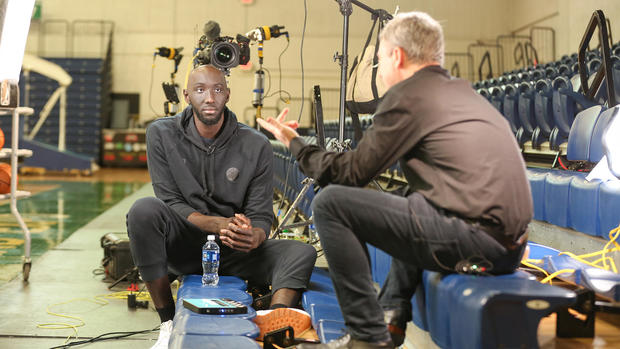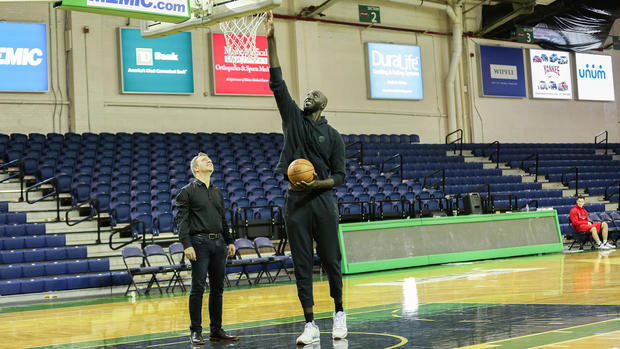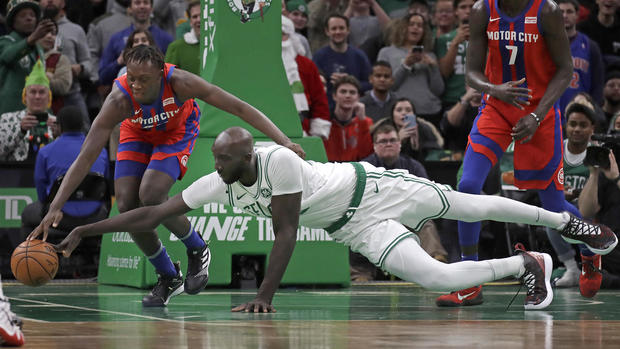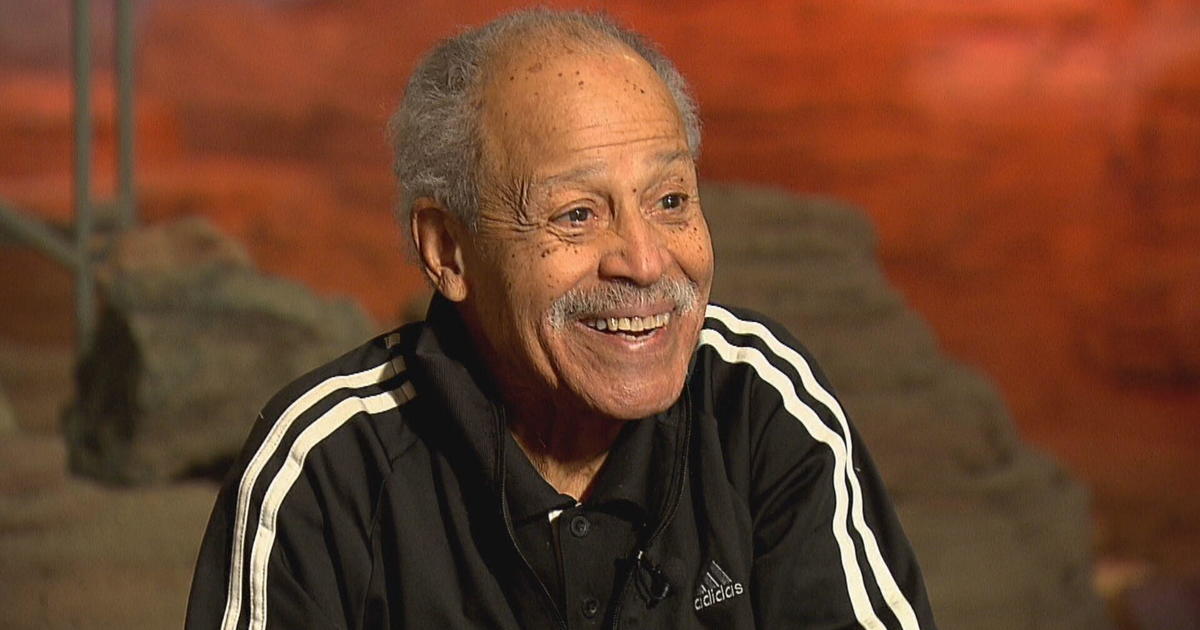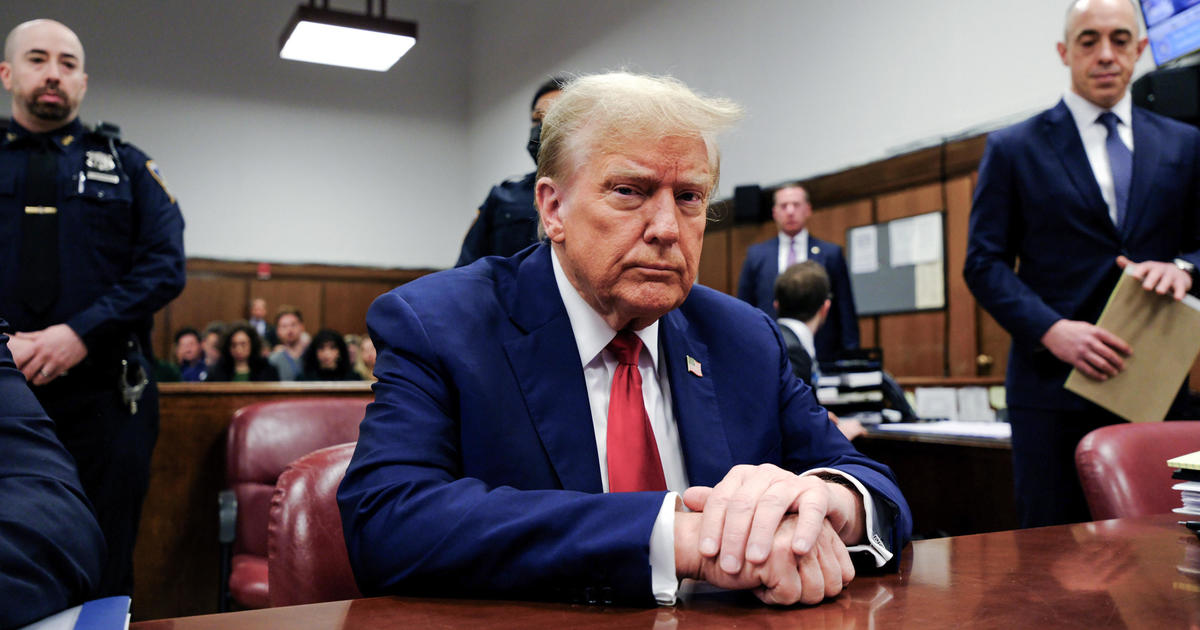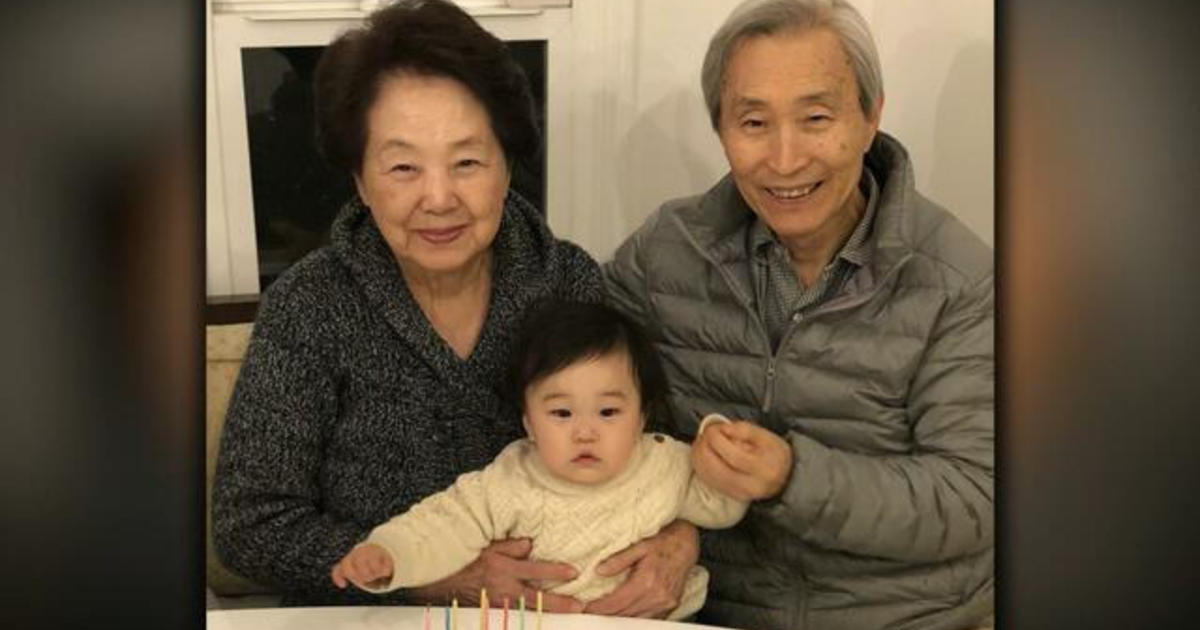Tacko Fall's journey from Senegal to the NBA
It is hard to miss Tacko Fall. The 7-foot-6-inch center for the Boston Celtics and Maine Red Claws is among the tallest players in professional basketball. He came to the U.S. from Dakar, Senegal, as a 16-year-old, with a special visa, a high school scholarship and the opportunity to play a mostly unfamiliar sport: basketball.
This week on 60 Minutes, correspondent Jon Wertheim interviewed Fall about his journey to the NBA as part of a 60 Minutes investigation into the pipeline of African teenagers who are recruited, sometimes deceptively, to play basketball in the U.S.
Below are some excerpts from Jon Wertheim's interview with Fall, edited for clarity:
Tacko Fall: "When I went to Houston… I didn't know what I was doing on the basketball court. I had no idea."
JON WERTHEIM: You're 16 years old. You've never been out of Senegal, and suddenly you're 4,000, 5,000 miles away in Texas. What's that like?
TACKO FALL: I was like, wow. Like, this is gonna be a long road ahead just without my mom… [and no longer] having my little brother by my side, just taking care of him. And now I didn't know when I was gonna be able to see them again. So that was really tough.
WERTHEIM: So there was a team of people who recognized, hey, we got a 16-year-old kid. He's 7'6". What did they promise you? What did they tell you?
TACKO FALL: I mean the biggest thing they told, and that was why my mom actually agreed to send me here, was he'd be able to pursue his education. And that was after they said that. And then it was a no brainer for her. But in the back of their mind they saw a lot of potential in me, I think.
WERTHEIM: As a basketball player.
TACKO FALL: As a basketball player. When I went to Houston, having no experience in basketball too, that was really tough. I was a big kid. I was huge. I was 7' 2". But I didn't know what I was doing on the basketball court. I had no idea. I didn't even know if I belonged in there. Some [of] it was a tough time getting adjusted to that. Just playing every day, working out, practicing, having the regimen. And it was also tough mentally, not having my mom, not having my family around. And then I didn't know how much America loves sport.
WERTHEIM: America loves sports.
TACKO FALL: Yes… And they can be rough sometimes. And they just saw me like, "Oh, he's a kid. He's big. He's supposed to be good at basketball."
Tacko Fall: "[There's] been many times where I feel like some people have been taken advantage of."
Fall played college basketball at the University of Central Florida, where he helped lead the Knights to the 2019 NCAA Tournament. Despite going undrafted, he signed a two-way contract with the Boston Celtics. Fall spent his rookie season splitting time between the NBA and its developmental subsidiary, the G League.
Eight years after leaving Senegal for the first time, Fall is looking to help the next generation of African players with their transition to the U.S. He believes that some of the deceptive practices involved in recruiting African players are being addressed and improved.
JON WERTHEIM: What advice do you have for the next 16-year-old that's deciding whether to come to the United States, sight unseen?
TACKO FALL: So for me, one of my goals is … to have made that transition as good as possible for the next ones that are coming.
WERTHEIM: How do we do that?
TACKO FALL: [I]t starts with us. For us to have made it this far, we're, like, ambassadors. How we compose our self on the court, how we play, how we act off the court is gonna show that if they go and invest in Africa, you're gonna have more kids like us that are gonna come. They're gonna work hard. They're gonna do things the right way.
WERTHEIM: You're one of the success stories. We've talked to other kids who have had a rougher go of it and really encountered some mistreatment and some real difficulties. I'm sure you've heard some of those stories as well.
TACKO FALL: Yes, I have. I have. [A]nd this is something that we have to fight, you know, a lot. We, as Africans, you just can't allow your kin to be treated unfairly. [There's] been many times where I feel like some people have been taken advantage of …they bring them here, then that's it. Then they're just left for their own. And if things don't work out, then they are pretty much screwed. It's getting better. I feel like now that they know what's going on, people are being more careful… especially now with the NBA being involved. And it's only gonna keep getting better.
WERTHEIM: You think there's a role for the NBA to play in professionalizing this pipeline?
TACKO FALL: Absolutely.
Tacko Fall: "I would… tell myself: keep being strong mentally… And just keep working hard."
Tacko Fall's first experiences in the U.S. were not exactly what had been promised. In his first few months, Fall's recruiters changed his high school, and as a result, he ran into problems with his visa. Fall moved to four different states before ending up at Liberty Christian Prep. outside of Orlando, Florida, which fixed his visa and made sure Tacko was cared for.
Despite this adversity, Fall told 60 Minutes he has no regrets.
JON WERTHEIM: What else would you have told your 16-year-old self back in Senegal?
TACKO FALL: I always think about it a lot. What would I have told myself? There were some days where it would not feel like I was really strong minded, where I felt like I didn't know what I was doing. Like, I was just lost in space.
JON WERTHEIM: Here in the U.S.
TACKO FALL: Yeah. Where now I would just, you know, tell myself where, keep being strong mentally. I mean, just focus on the things you can control, 'cause that's all you can do sometimes. And just keep working hard. And everything that you're doing is fine. I feel like I've done everything the right way. There wasn't anything that I've done that I've regretted. So yeah.
JON WERTHEIM: No regrets.
TACKO FALL: No regrets.
